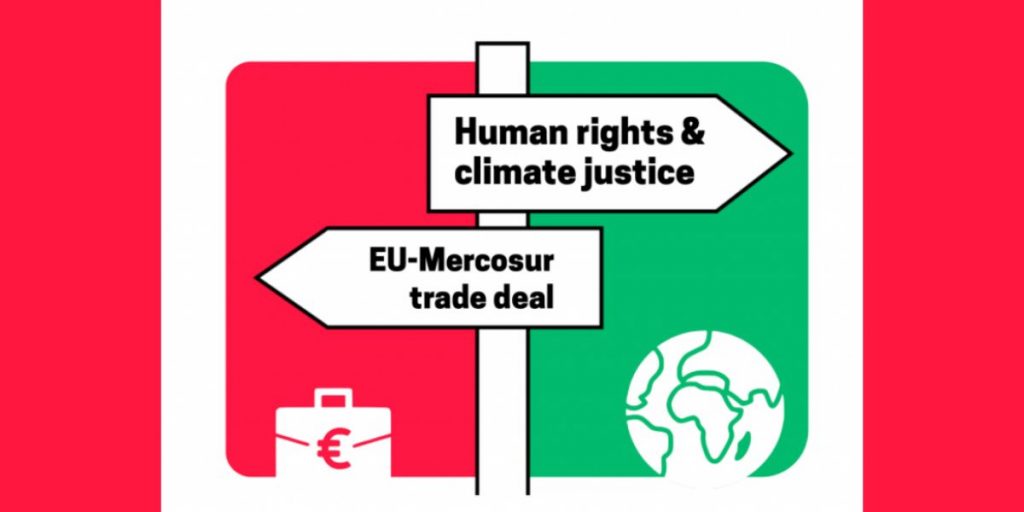In an open statement ahead of a meeting of EU trade ministers this Friday 25th November, 200+ civil society organisations from Europe and Latin America have called on EU governments and decision-makers to oppose the European Commission’s attempt to fast-track EU-Latin American free trade deals by side-stepping national parliaments and removing member states’ veto right, labelling it “an anti-democratic power grab.”
The European Commission wants to speed up the ratification of trade deals with Mexico, Chile and Mercosur countries (Brazil, Argentina, Paraguay and Uruguay) by splitting the trade provisions of the deals from other political provisions. This splitting would mean that the trade parts of upcoming bilateral deals with Latin America could be adopted without consensus among EU governments and without democratic debate and public scrutiny from national parliaments.
This goes against the Council’s negotiation mandate from 1999 and a decision by EU national governments in 2018, when they specifically tasked the Commission with presenting these deals as mixed agreements, meaning that a consensus among national governments is needed and all relevant national and regional parliaments across the EU have to give it their approval.
While the Commission is pressing ahead with this splitting manoeuvre, civil society organisations and national parliaments have already raised serious concerns about the EU-Mercosur deal, which would boost trade in agricultural products that drive deforestation and violations of Indigenous People’s rights. Deforestation rates in the Brazilian Amazon have reached historic highs again this year. The number of forest fires in the Amazon within a 24-hour period hit a nearly 15-year high. The fires are closely linked to agricultural burning. Over 50 of the major fires within this year’s fire season occurred within Indigenous territories. At the same time, Indigenous communities on the front line have faced dramatic intensification of violence; 355 cases of physical violence against Indigenous people have been reported last year.
Audrey Changoe, Friends of the Earth Europe, commented:
“People already hear very little about the potential impacts of free trade deals, as most of them are shrouded in secrecy. The Commission’s plan to split the EU-Mercosur deal would sidestep citizens’ and national parliaments’ concerns regarding the severe impacts on deforestation, human rights and climate. What happened to the values of democracy, transparency and solidarity the EU is boasting to embody?”
Lis Cunha, Greenpeace Germany, commented:
“The European Commission knows that the days of its blinkered trade policy are numbered, and wants to split these deals to ram them through without proper oversight. The public are increasingly aware of the social and environmental damage these trade deals can cause; the Commission would do better to listen to these concerns instead of resorting to undemocratic tricks to ignore them. The trade policy of the future must be one that respects human rights, labour rights and the environment – why doesn’t the Commission work to make that a reality instead of bypassing parliaments?”
Related Content
We think you’d also like:

Stop the EU-Mercosur trade deal
The EU is close to finalising a climate-wrecking trade deal with Brazil, Argentina, Paraguay and Uruguay – known collectively as Mercosur. But there’s still time to stop it.







